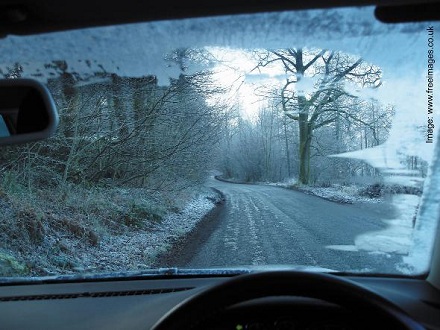
Story: DAVID WILKINS
NOT-FOR-PROFIT industry body TyreSafe has launched its annual “Time for a Change?” campaign to persuade traditionally sceptical British drivers of the benefits of winter tyres.
Most business drivers will still be slip-sliding away on their standard summer tyres as the weather gets worse this autumn but one leading chain, ATS Euromaster, reports that its British sales of cold-weather tyres increased by 200 per cent last winter – and the company says it’s gearing up for a further sixty per cent rise this year.
“The difference in grip from winter tyres is astonishing. Stopping distances are reduced by as much as 11 metres”
One reason for last year’s increase – lots of big fleets started swapping tyres for the winter for the first time. But getting the message across to other business car drivers and small businesses still seems to be a bit of an uphill struggle – many drivers think the tyres are only useful in more extreme snowy or icy conditions, although as TyreSafe points out, they also do a good job in milder wet conditions or at any time when temperatures drop below seven degrees celsius.
Met Office figures show that temperatures fell below this mark during commuting hours on 147 days between the beginning of October 2011 and the end of March 2012. “While last winter was actually milder than normal, these statistics are ample reason for motorists to still consider swapping to winter tyres from October to March, in fact 147 very strong reasons,” said Stuart Jackson, chairman of TyreSafe.
Winter tyres offer improved grip in cold weather thanks to optimised tread patterns and the use of compounds that stay soft at low temperatures because they contain more natural rubber and advanced silica.
The difference in grip from winter tyres is astonishing. Stopping distances are reduced by as much as 11 metres – think of it in terms of three car lengths – on icy roads, but winter tyres work just as well in wet and cold.
Winter tyres involve big up-front costs for SME businesses that adopt them as part of its company car policy, as well as practical headaches such as storing a second set of wheels for each car – although some tyre fitting companies provide ‘tyre hotels’ for storage.
But that needs to be set against the reduced risk of winter accidents – with all the hassle and costs involved – and reduced spending on standard tyres over the life of the car from a company car management perspective.
However, TyreSafe says that those SME companies that don’t make the switch to winter tyres should still check the tyres of their company cars to make sure they are in good condition as winter approaches.
Want to know more about winter tyres? Read this







